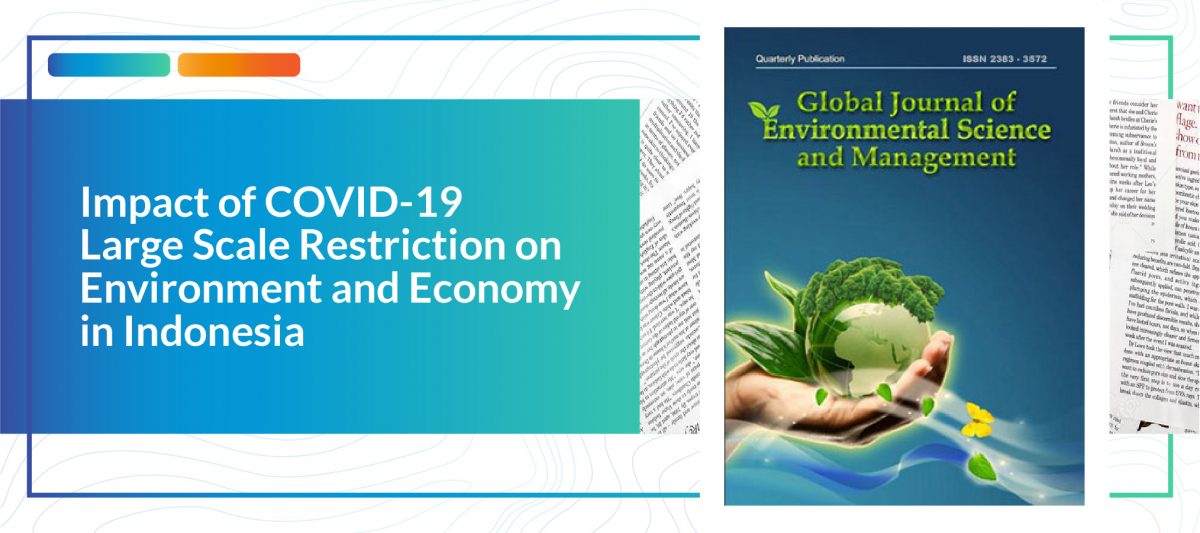Impact of COVID-19 Large Scale Restriction on Environment and Economy in Indonesia

COVID-19 has a severe and widespread impact, especially in Indonesia. COVID-19 was first reported in Indonesia on March 03, 2020 then rapidly spread to all 34 provinces by April 09, 2020. Since then, COVID-19 is declared a state of national disaster and health emergency. This research analyzes the difference of CO, HCHO, NO2, and SO2 density in Jakarta, West Java, Central Java, and South Sulawesi before and during the pandemic. Also, this study assesses the effect of large scale restrictions on the economic growth during COVID-19 pandemic in Indonesia. In a nutshell, the results on Wilcoxon and Fisher test by significance level α=5% as well as odds ratio showed that there are significant differences of CO density in all regions with highest odds ratio in East Java (OR=9.07), significant differences of HCHO density in DKI Jakarta, East Java, and South Sulawesi. There are significant differences of NO2 density before and during public activities limitation in DKI Jakarta, West Java, East Java, and South Sulawesi. However, the results show that there are no significant differences of SO2 density in all regions. In addition, this research shows that there are significant differences of retail, grocery and pharmacy, and residental mobility before and during the COVID-19 pandemic in Indonesia. This research also shows that during the COVID-19 pandemic there are severe economic losses, industry, companies, and real disruptions are severe for all levels of life due to large scale restrictions.
Global Journal of Environmental Science and Management 6 (Special Issue Covid-19)
Rezzy Eko Caraka, Youngjo Lee, Robert Kurniawan, Riki Herliansyah, Prana Ugiana Gio, Puspita Anggraini Kaban, Bahrul Ilmi Nasution, Rung Ching Chen, Toni Toharudin, Bens Pardamean
